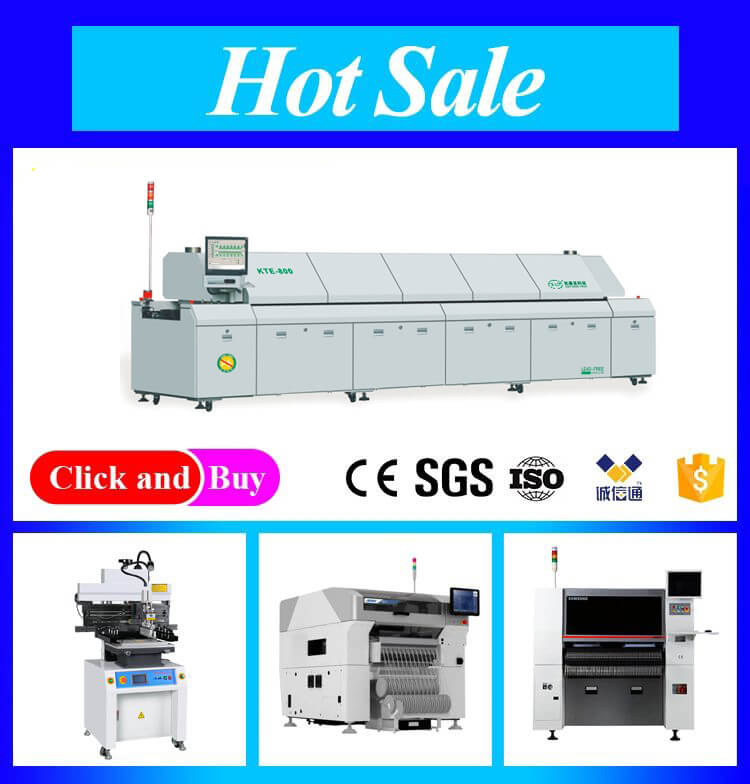Conformal Coatings of Printed Circuit Boards
Wet or moist environments, as well as contaminant-laden ones, can causes failures on printed circuit boards in the form of short circuits. They can also corrode conductors and/or solder joints. To overcome these problems, a conformal coating can be added to a printed circuit board.
In addition, conformal coatings deter dendritic growth and/or inhibit the occurrence of electromigration, which is the incremental movement of a conductor's ions due to momentum transfer that can result in premature failure of electrical interconnection points.
Of the five types of conformal coatings commonly applied, all of them prevent abrasion and damage of components and circuits on PCBs from solvents. Stress relief and insulation resistance protection can be added to the PCB via the conformal coating.
Definition of Conformal Coating
A conformal coating is material added to PCB circuits to protect them from moist environments, air particulates, chemical solvents and very hi temperatures that could (without the coating), have a deleterious effect or result in the failure of an electronic circuit. Thus, when a PCB will be used in a harsh environment, a conformal coating is added for protection.
To correct any environmental problems that would affect the proper operation of the circuit, PCB manufacturers will typically add a clear layer of conformal coating, instead of potting, to the PCB and associated assemblies.
Different Types of Conformal Coatings
There are five types of conformal coating materials available commonly offered in the competitive marketplace. They are:
Acrylic Coating
This type of coating material is usually based on solvents and very easy to repair. Acrylic coatings usually modestly priced. However, their costs have been increasing as new regulations and safety issues with the use of solvents have become more prominent. While acrylic coatings have the advantages of being hard, durable and clear, they are not good at the relief of stresses. Its potting lifespan is rather good since more solvent can always be added to maintain the bath viscosity at a minimum. This type of coating material has low moisture absorption and a short time for drying in the event that volatile solvents are used.
Epoxy Coating
This type of coating material has the characteristics of being extremely hard with opaqueness and typically has an above average moisture resistance. Epoxy coatings have very high chemical and abrasive material resistance; however, the coating can place stress on PCB parts when temperature variations occur. Another concern for this type of coating is that extra precautions for safety purposes need to be taken when working with cure chemistries. This type of coating can also create a lot of change in viscosities and challenges in maintaining curing times as well as the proper thickness of the coating during widely changing temperatures.
Urethane Coating
This type of coating material has a great amount of strength, hardness and provides a very high level of solvent resistance. Urethane coatings also provide superb resistance to abrasion and a low level of permeability of moistures. In addition, they have good low-temperature adaptability. Their limitation is they don't perform well in high temperature environments and for the most part cannot be repaired.
Paraxylylene Coating
This type of coating material is very consistent and obtains a very high level of coverage of the PCB's pins. However, it is expensive, sensitive to contaminants, and must be applied in a vacuum.
Silicone Coating
This type of coating material has many varieties including, elastoplastic which are tough and abrasion-resistant, to elastomeric which are soft and function well as a stress-reliever.
Silicone coatings feature the following benefits:
-
Capable of being RTV or heat cured.
-
Perform well over an extremely broad range of temperatures.
-
High level of resistance to humidity and/or moisture.
-
Versatile for processing
-
Easy to repair
-
Minimally toxic
Keywords:
SMT Reflow Oven, Lead free Reflow Oven, Reflow Oven Manufacturer, LED reflow oven, PCB Reflow Oven, Nitrogen Reflow Oven, Dual Rail Reflow Oven, China Reflow Oven, wave soldering machine, Dual Rail Wave Soldering Machine, Nitrogen Wave Soldering Machine, Wave Soldering Machine Manufacturer.
Flason Electronic Co.,ltd provide a full SMT assembly line solutions, including
SMT Reflow Oven,
Wave Soldering Machine,
Pick and Place Machine,
SMT Stencil Printer,
SMT AOI SPI Machine,
SMT Reflow Oven,
SMT Peripheral Equipment,
SMT Assembly line,
SMT Spare Parts
etc any kind SMT machines you may need, please contact us for more information:
wechat whatsapp:+8613691605420, Skype: flasonsmt, Email: sales@flason-smt.com


 FAQ
FAQ
1) This is the first time I use this kind of machine, is it easy to operate?
There is English manual or guide video that show you how to use machine.
If you still have any question, please contact us by e-mail / skype/ phone /trademanager online service.
2) If machine have any problem after I receive it, how can I do ?
Free parts send to you in machine warranty period.
If the part is less than 0.5KG, we pay the postage.
If it exceeds 0.5KG, you need to pay the postage.
3) MOQ ?
1 set machine, mixed order is also welcomed.
4) How can I buy this machine from you? ( Very easy and flexible !)
A. Consult us about this product on line or by e-mail.
B. Negotiate and confirm the final price , shipping , payment methods and other terms.
C. Send you the proforma invoice and confirm your order.
D. Make the payment according to the method put on proforma invoice.
E. We prepare for your order in terms of the proforma invoice after confirming your full payment.
And 100% quality check before shipping.
F.Send your order by air or by sea.
5)Why choose us ?
A. Gold supplier on Alibaba !
B. Trade assurance to US$54,000 !
C. Best price & Best shipping & Best service !




